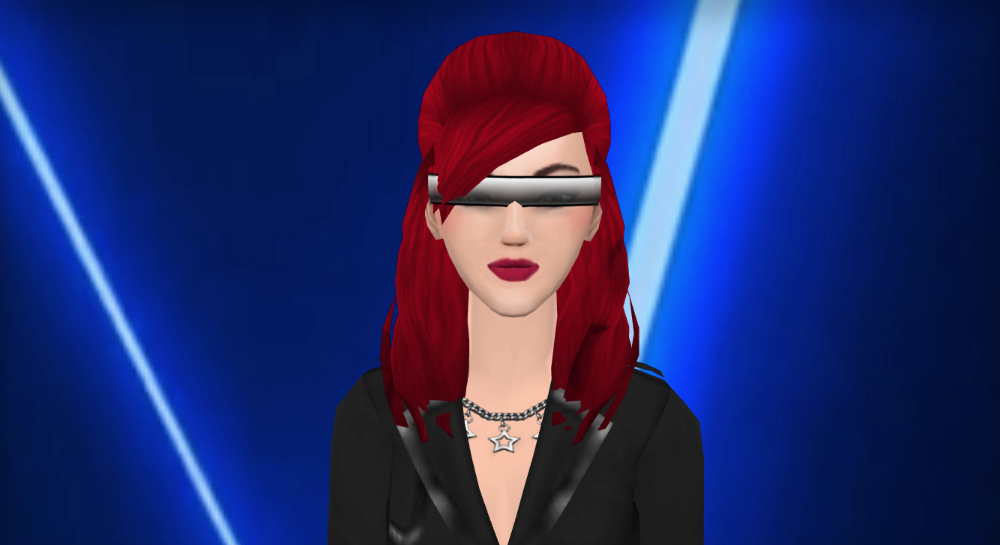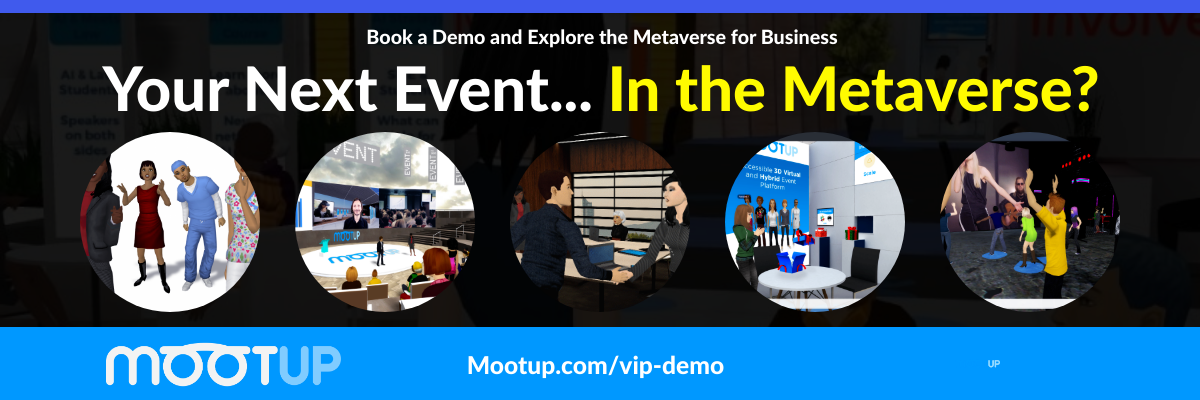Is the metaverse a gamechanger for the events world?
Recently Meta CEO Mark Zuckerberg announced the rise of the metaverse, a new 3D “embodied internet” with a more profound “feeling of presence”. This virtual world was showcased as the next big thing, offering an enormous opportunity for businesses and consumers alike.
It seems like a few months ago nobody knew about the metaverse and now everybody is talking about it. But the metaverse isn’t a few months old. In fact, the word was coined as far back as 1992 in Neal Stephenson’s science fiction novel Snow Crash.
Then in the year 2000, Danny Stefanic prototyped the first 3D web browser that was in active development from 2004 to 2011. This unique service was the world’s first metaverse platform. It transformed every internet web page into a procedurally generated 3D space where people could meet each other.
Soon we’ll explain how we evolved from that to the metaverse that is already available in your pocket, but before that let’s look at where the new virtual world sits in the computer progress timeline.
The next step in technological development
The metaverse is part of a history of dramatic technological developments.
First to arrive in the early 1980s was the desktop computer. Then laptops came along, enabling people to work and play from multiple locations. More recently mobile devices have emerged, offering greater flexibility and access to information on the go.
As the next stage in the tech advance, the metaverse gets a competitive advantage by providing users with a greater sense of actually being present among other people. 3D virtual spaces create immersive encounters that replicate the real world in a much more profound way.

The metaverse now
It’s important to clarify that the new virtual world is not just about the future. It’s about the present as well. Without knowing it most people are already using the metaverse. For example, since the 2010s, Google Maps has been providing a metaverse-based navigational tool to help users find airports, malls, streets, and parks.
Meanwhile Roblox – which these days attracts 200m users per month – has been offering a gamified virtual experience since 2006.
At the same time, MootUp has been offering 3D virtual events and meeting solutions with the ability to create virtual worlds to host meetings, events, community activities, and remote work- organizing virtual events for over 1000 companies, such as Impartner for example, a leading channel management provider and the fastest-growing pure-play Partner Relationship Management (PRM).
In addition, since 2014 LearnBrite has been using its virtual reality learning and development platform to help clients offer immersive microlearning and interactive scenarios to students, employees, or customers. A great example is Curtin University who in partnership with LearnBrite has won awards for the development of a home visit training tool for physiotherapists.
So, even if the metaverse has only begun trending in the news recently, as a concept and as working technology, it has been around much longer.
The new rise of the metaverse
On October 28 Facebook CEO Mark Zuckerberg announced that from now on his company would be known as Meta, formalizing his firm’s focus on the metaverse. A wave of publicity followed in which major media outlets from all over the globe provided wall-to-wall coverage. Suddenly, the metaverse was on everyone’s lips.
It isn’t just Mark Zuckerberg who has been investing in the metaverse. In a drive to make the platform more fun, personal, and engaging, in 2021 Microsoft also unveiled Mesh for Microsoft Teams (to be launched to users in 2022) which allows for holographic community experiences.
For those involved in the metaverse for a decade or more, the moves by Meta and Microsoft have signalled that the time is now upon us for the metaverse to start properly disrupting the way we do business and have fun.

The metaverse future
During his straight-to-camera speech in October 2021, Mark Zuckerberg painted a glossy Hollywood picture of the future of the virtual world. He talked about art, culture, fashion, NFTs, and player vs player gaming filling our headsets and blowing our minds.
There are many millions of people in the world who are excited about the potential for the virtual world to entertain, educate, and bring communities together. As more and more parts of society learn about and experience the metaverse, demand for 3D encounters will rise. This increase won’t be restricted simply to the consumer market. Businesses and public organizations will look for leverage as well, using the metaverse to host events and conferences with compelling education and training simulations.
#MetaverseForBusiness
Despite it being around for a while now, the Metaverse is not a mature industry yet. We are just at the beginning of the new virtual world. This is perfect for the consumers, public organisations, and businesses out there, because it means now is a great time to take advantage of the latest technology.
Join the new world with MootUp!
So, come on in. Be the first to the events metaverse!
Have an ‘aha moment’ trying out the wonders of a more immersive internet gathering, a technological experience that is more real than anything you have tried before. Book a demo and weigh up MootUp’s fully functional metaverse platform.

